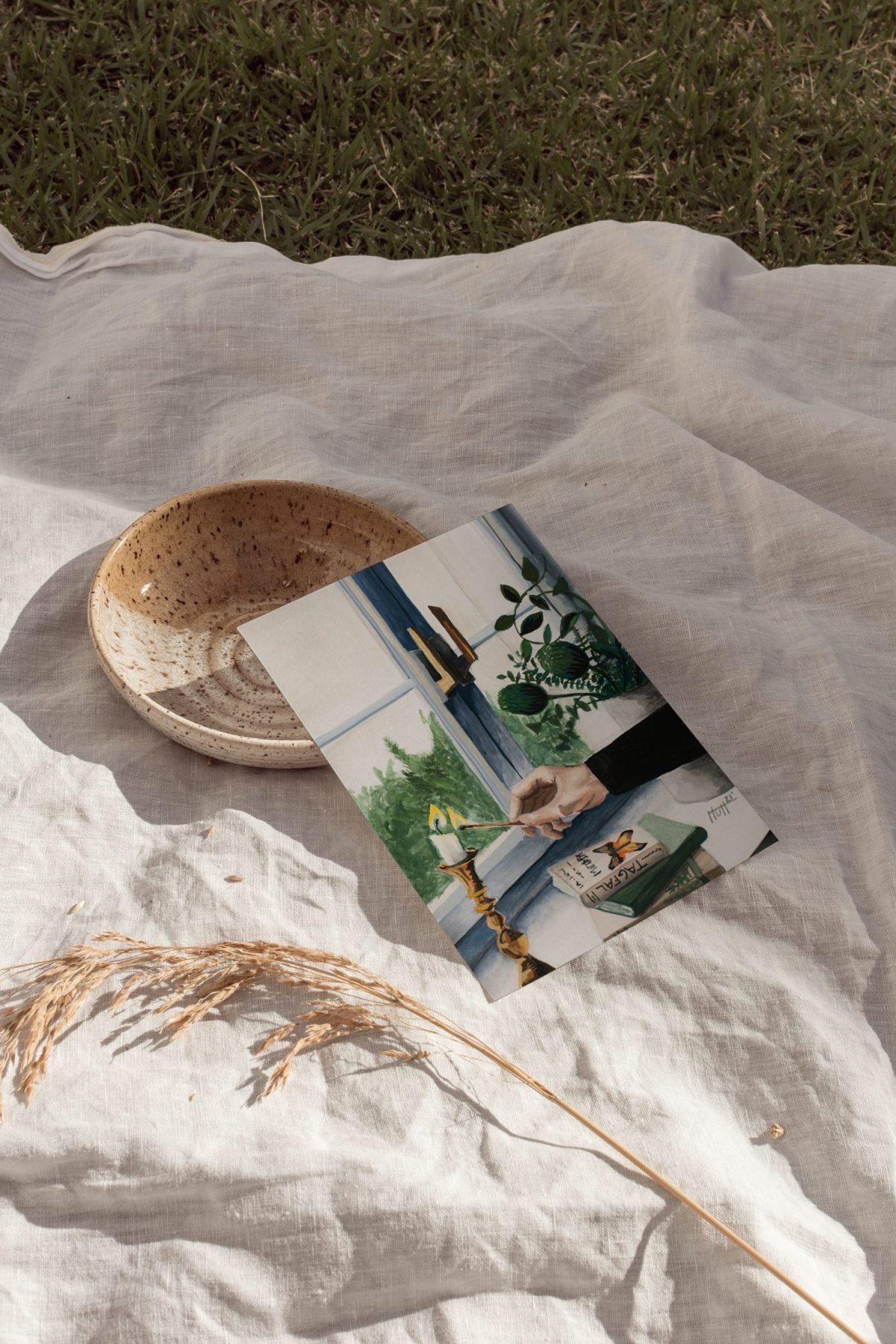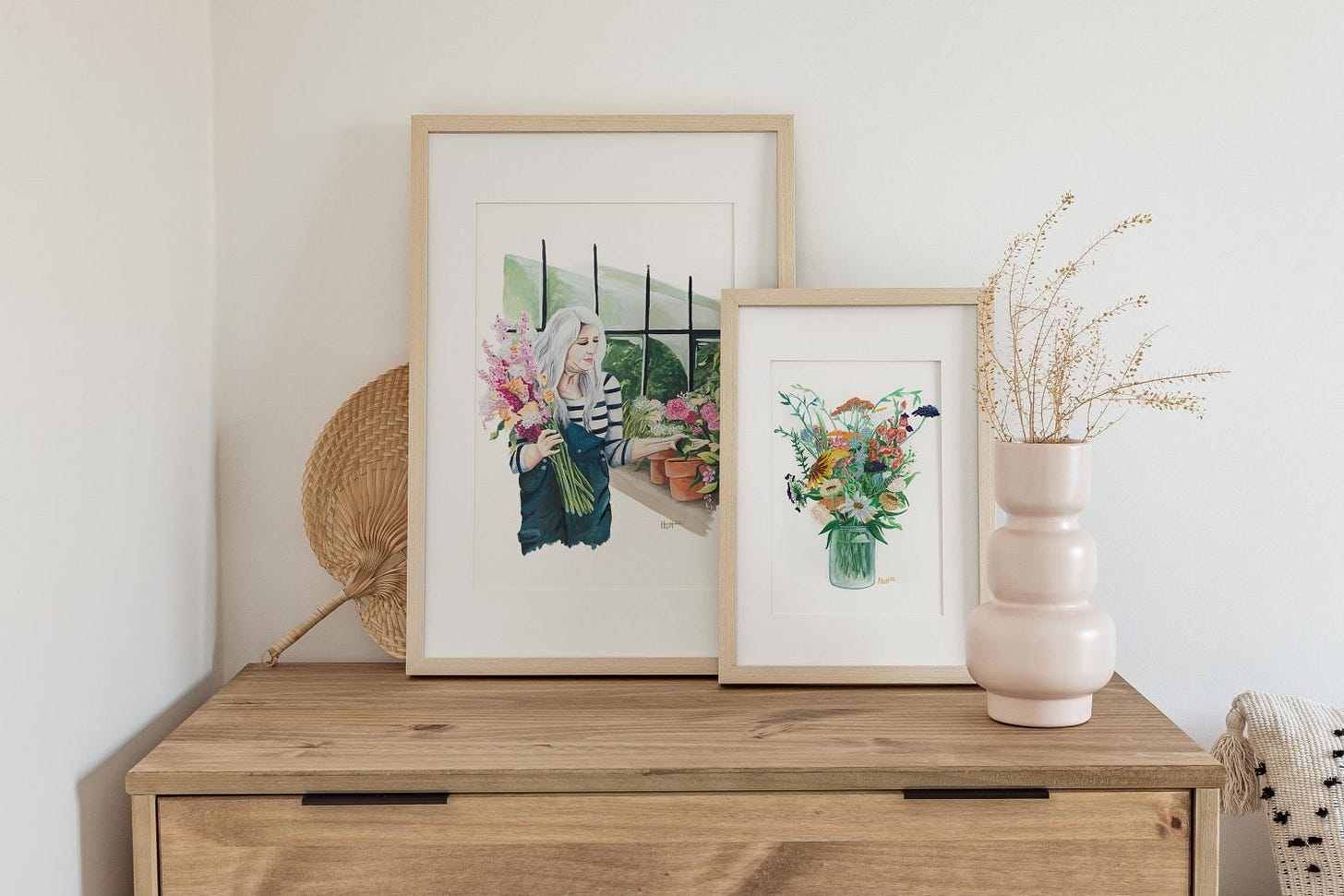
The Witches Were Right–Connecting With Your Feminine Roots Through Art and Herbs
Once upon a time, before men in powdered wigs decided that bloodletting was a solid medical strategy, women were the keepers of health. They knew which roots could soothe a cough, which leaves could ease a fever, and which flowers could (ahem) improve a romantic evening. They passed down this wisdom through generations, teaching daughters, sisters, and the occasional worthy apprentice. And for this incredible knowledge, they were, of course… burned at the stake.
When Healing Became a Crime
For centuries, “wise women” (later to be called witches) were the ones people turned to when they were sick, when they were in labor, or when they just needed a good, strong tea after a stressful day. But the rise of male-dominated medicine—and medicine regulated by the church—transformed these women from respected community healers into “witches” practically overnight.
Barbara Ehrenreich and Deirdre English’s Witches, Midwives, and Nurses lays it out: the medical establishment of the time saw these skilled women as a threat, and the best way to eliminate competition was to paint them as dangerous. And let’s be honest, what’s more threatening than a woman who knows things? Particularly when those things involve bodily autonomy, reproductive health, and natural medicine.
The consequences were dire. Midwives, who had safely delivered babies for centuries, were pushed aside in favor of doctors who (no joke) often didn’t even wash their hands before attending a birth. Mortality rates for mothers and infants skyrocketed. But hey, at least no one was using witchcraft, right?

Indigenous Women and the Knowledge of the Land
While Europe was busy persecuting its healers, Indigenous women across the world continued their deep connection to the land. Robin Wall Kimmerer, in Braiding Sweetgrass, writes about how plants are not just ingredients but teachers, guides, and relatives. Indigenous healers understood the cycles of nature and the ways plants could support, restore, and protect. But as colonialism spread, their knowledge was dismissed, erased, or stolen—yet another case of powerful women being silenced for knowing too much.
And here we are today, finally circling back to the wisdom that was there all along.
Modern Medicine vs. Ancient Wisdom
Now, don’t get me wrong—modern medicine is incredible. If I break my leg, I want a surgeon, not a poultice of moss and hope. But we’ve also lost something vital in our healthcare system: a trust in our bodies, our cycles, and the natural world. We’re taught to suppress symptoms rather than ask what they’re telling us. We forget that medicine—the pills we take without question—comes from plants. (Yes, even aspirin has its roots in willow bark.)
We also forget that working with the seasons and our own natural rhythms is actually… how we’re supposed to function. Instead, we’re expected to perform at the same level every day, as if we aren’t beings influenced by cycles, hormones, and—let’s be real—the occasional need to curl up in a blanket and avoid everyone.

Embrace Your Inner Kitchen Witch
The same herbs that wise women brewed in their kitchens are still here, waiting for us to remember them.
- Ginger fights nausea and inflammation.
- Rosemary improves memory and focus.
- Chamomile is nature’s chill pill and the base for most herbal teas I make.
- Peppermint can help with digestion, headaches, and overall sassiness. (Is said to keep away unwanted guests.)
- Ashwagandha (because some of us need to thrive, not just survive) helps with stress and adrenal support. (This is in the adaptogen family meaning it knows what you need.)
- Lavender is another useful chill pill. I love adding just a touch to teas or using a few drop of essential oil in my humidifier. (It also keeps the spiders away if you use it around your house)
- Rooibos (a tea made from a South African tree) is wonderful for menstrual cycles especially those who suffer from cramping.
And the best part? You don’t need a prescription, a co-pay, or to wait two hours in a doctor’s office to access them. Learning about the herbs that are readily available to you either in your own backyard (like Dandelions which are great in salads or teas and help with supporting the urinary tract) or at the grocery store allow you to take back control over your body and empower you to live a life where you don’t only feel good in your body but you also feel connected to all the elements that help you have that healthy body.
(Side note: If you are pregnant this is not the time to experiment with herbs as there are far less studies known about herbs with pregnant bodies. If you want to explore herbs and wise woman knowledge I suggest finding an herbalist to work with.)

Honoring the Women Who Came Before Us
March is Women’s History Month, but let’s be real—women’s history isn’t just about women. It’s about all of us. The knowledge of midwives, healers, and Indigenous medicine women didn’t just serve other women; it kept entire communities alive. By honoring their traditions, we reconnect with a way of living that’s been buried (sometimes literally, thanks to witch trials) but never truly lost.
In South Africa, there’s a philosophy called Ubuntu, which means, “I am because we are.” It reminds us that our freedoms, our knowledge, and our well-being are bound together. When we reclaim the wisdom of the women before us, we don’t just heal ourselves—we heal each other.
So here’s to the witches, the wise women, and the healers. May we remember them, may we learn from them, and may we never underestimate the power of a woman who knows her herbs.
